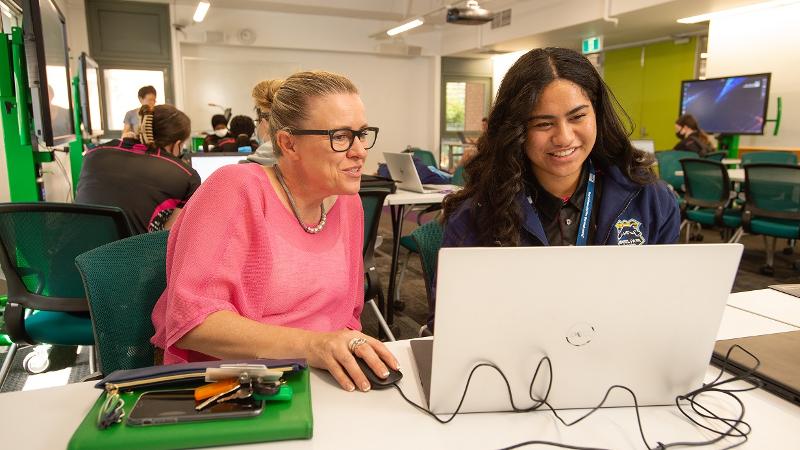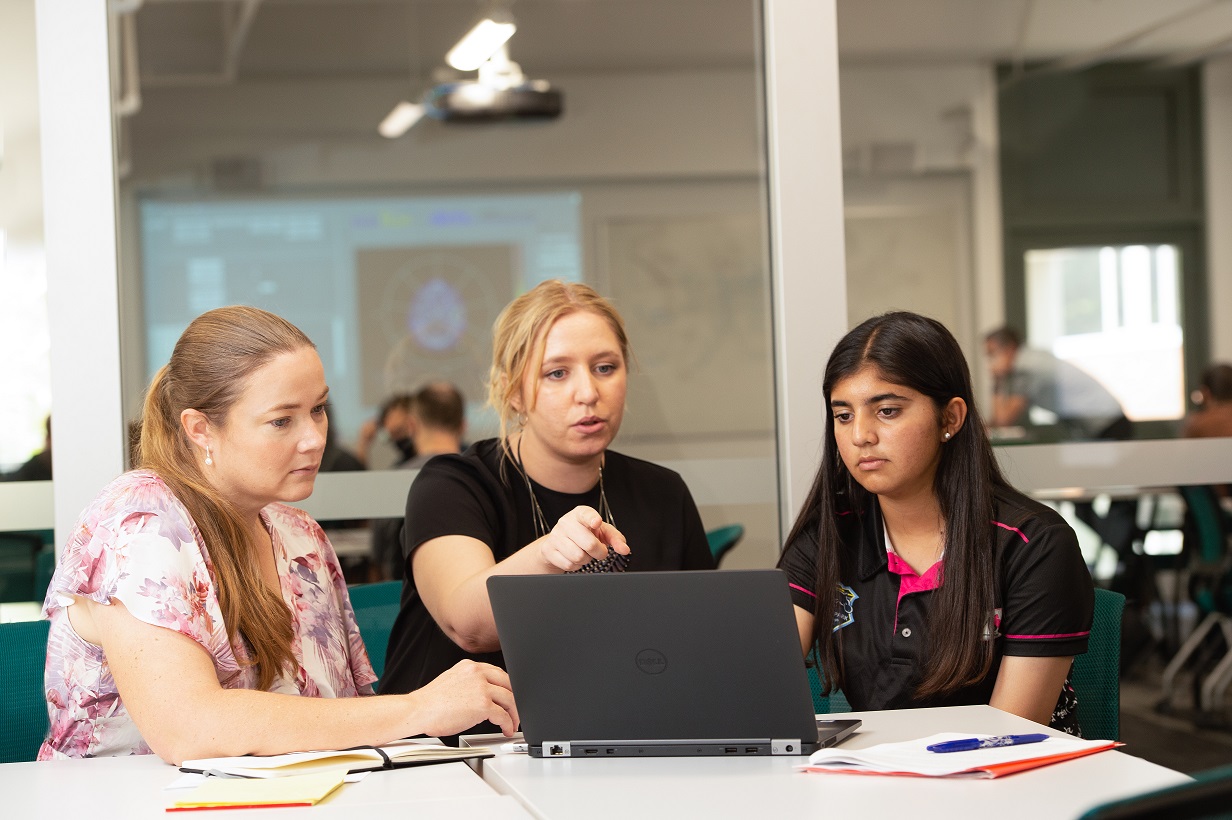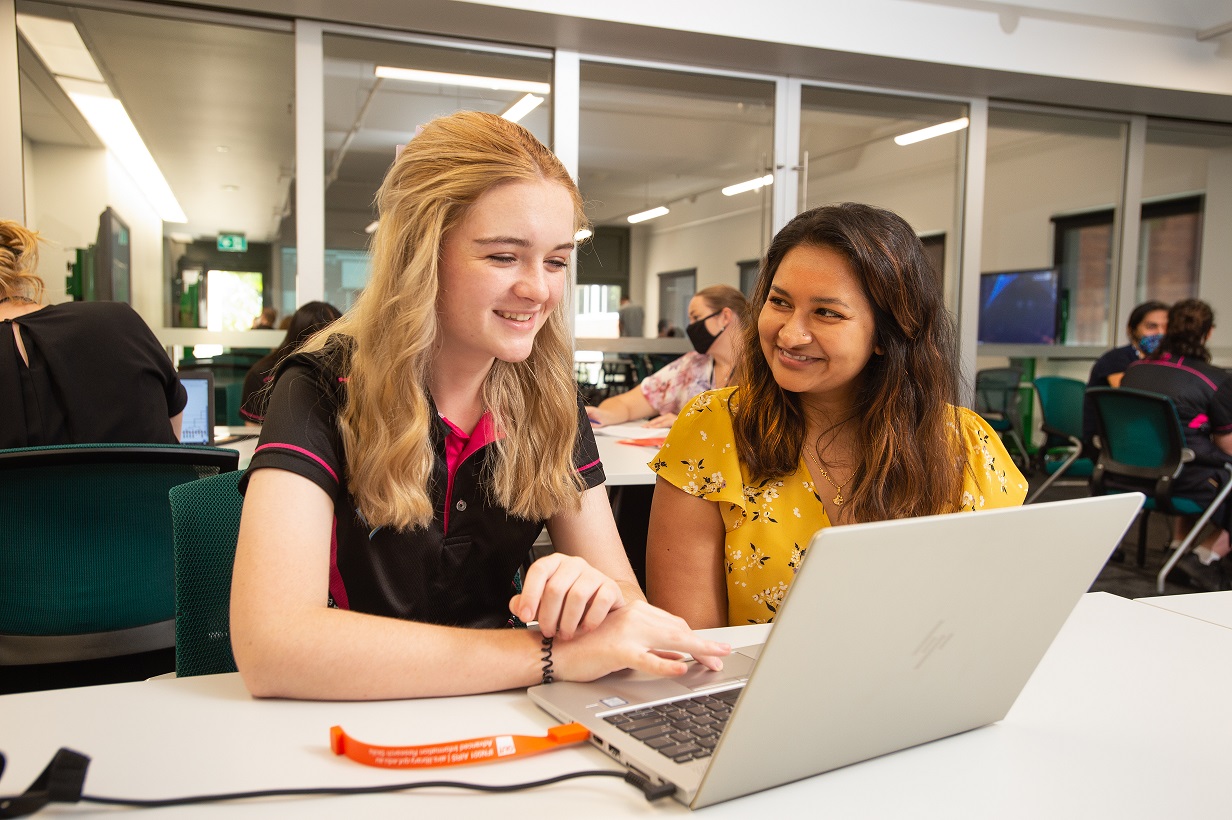
A new QUT program for young, aspiring STEM high school students will see eight academics paired up with eight students in a mentoring immersion project.
The project, a partnership between Mabel Park State High School (MPSHS) and the School of Mechanical, Medical and Process Engineering in QUT’s Faculty of Engineering, kicked off on September 3.
The first of its kind for QUT, the program aims to address the lack of gender equity and social diversity that still exists in STEM-focussed careers and engage female high school students from diverse cultural and socio-economic backgrounds.
“Through the real-world experience they will gain in this STEM Immersion Program, we hope to give these young women a vision of themselves as a STEM professional,” said Associate Professor Paige Little who, with her team, created the program.

The Year 9 and 10 students will attend QUT one day per fortnight for one school semester where they will work one-on-one with an academic mentor to achieve outcomes on their own individual STEM-based project.
“This program will give the young women the opportunity to carve out paths of success for their future,” Associate Professor Little said.
“Both QUT and Mabel Park State High School have energetically supported this, as we collectively see a program of this kind, focussing on young female students from a demographic of lower relative socio-economic advantage and First Nations Backgrounds, has much potential in creating opportunities for their future.”
The mentors span the academic career pathway, from post-doc to professor, and they will be working with their student engineers and scientists on an exciting and diverse range of projects, from measuring deformity in children with scoliosis, to creating an innovative ocean clean-up device.
They will be real research projects and the mentors will support the students to learn the skills needed such as researching, evaluating their findings and presenting their work.

QUT Vice-Chancellor Professor Margaret Sheil said she was looking forward to seeing how the STEM students tackled their new challenges.
“As a scientist myself, I know first-hand the enormous benefits of understanding the key concepts and developments in science. A STEM education not only benefits your career but also enriches your intellectual life,” Professor Sheil said.
“Even if you don’t end up as a scientist the skills you learn in science, technology, engineering and maths can be applied across all industries.”
Professor Sheil said QUT was committed to ensuring all young people, regardless of background, knew about the wide range of career opportunities open to them, and experience exactly what it means to a scientist, an engineer or an analyst.
Media contact: Madeline Healy, QUT Media Officer, 07 3138 3083, m5.healy@qut.edu.au
After Hours: Rod Chester, QUT Media Team Leader, 0407 585 901, media@qut.edu.au


